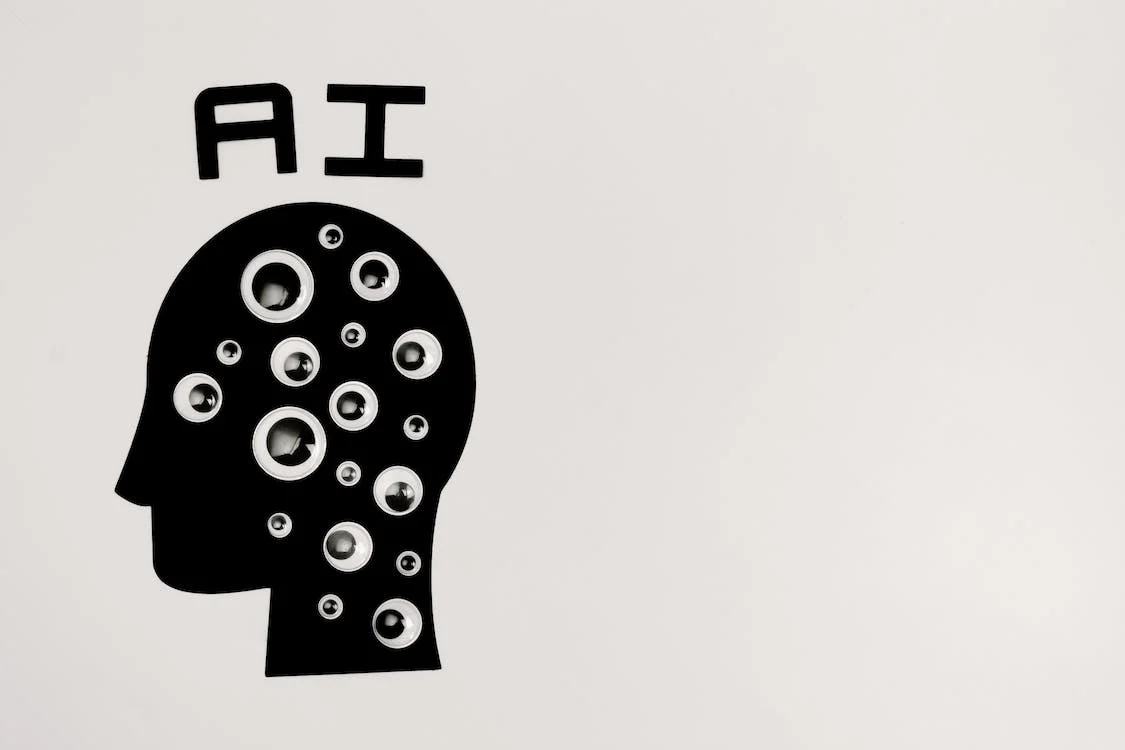Machine Learning for Customer Segmentation
Customer segmentation, the practice of dividing customers into groups of individuals that are similar in specific ways, is a fundamental strategy in digital marketing. Today, with the emergence of machine learning technologies, this practice is evolving in sophistication and effectiveness. This article explores how machine learning is being used to enhance customer segmentation, offering greater insights and driving more personalized marketing strategies.
Table of Contents
- What is Customer Segmentation?
- The Role of Machine Learning in Customer Segmentation
- How Machine Learning Enhances Customer Segmentation
- Applications in Digital Marketing
- Benefits and Challenges
- Conclusion
What is Customer Segmentation?
Customer segmentation is a marketing strategy that divides a customer base into groups of individuals sharing similar characteristics. These characteristics can include demographics, buying behaviors, interests, and various other attributes. The goal of customer segmentation is to identify high-value segments – groups of customers where targeted marketing efforts can yield the highest return.
Before the advent of advanced data analysis techniques, customer segmentation was often a manual, time-consuming process with a high degree of subjectivity. However, today’s digital landscape offers an abundance of data, and with the right tools, marketers can leverage this data to gain deeper insights into their customer base.

The Role of Machine Learning in Customer Segmentation
Machine learning, a subset of artificial intelligence, involves systems that can learn from data, identify patterns, and make decisions with minimal human intervention. In the context of customer segmentation, machine learning algorithms can analyze large customer datasets and identify more nuanced segments than manual processes ever could.
These algorithms can consider numerous variables simultaneously, including purchasing behavior, customer feedback, online activity, and demographic information. By analyzing these variables, machine learning can uncover patterns and relationships that may not be immediately apparent, enabling the creation of highly detailed and accurate customer segments.
Different types of machine learning algorithms are suited to different types of segmentation tasks. For example, unsupervised learning algorithms, such as k-means clustering, are commonly used for segmentation because they can identify patterns and group data without needing pre-existing labels or classifications.
How Machine Learning Enhances Customer Segmentation
Machine learning dramatically enhances customer segmentation in several key ways:
- Increased Accuracy: Machine learning algorithms can handle vast amounts of data and numerous variables, leading to more accurate and granular customer segments.
- Scalability: Machine learning can quickly process large datasets, making it a scalable solution that grows with your business.
- Adaptability: Machine learning models can learn and adapt as they are exposed to new data, ensuring that your customer segmentation strategies evolve with changing customer behaviors and market trends.

Applications in Digital Marketing
Machine learning-enhanced customer segmentation has a wide range of applications in digital marketing, helping businesses to create more targeted, effective, and personalized marketing strategies. Here are some notable applications:
- Personalized Marketing Campaigns: With more detailed and accurate customer segments, businesses can create highly personalized marketing campaigns. This can involve tailoring the message, the product recommendations, the timing, and the marketing channels to the preferences and behaviors of each segment.
- Customer Retention: Machine learning can help identify patterns that signal a customer is at risk of churning. Early identification of these customers allows businesses to take proactive measures to improve their experience and retain them.
- Improved Product Development: Understanding the needs and preferences of different customer segments can inform product development, helping businesses to create products that better meet the needs of their customers.
We also talk about how Machine Learning can be used for marketing in our article “A Deep Dive into Machine Learning Applications in Digital Marketing“.
Benefits and Challenges
While machine learning offers many benefits for customer segmentation, it also presents certain challenges that businesses need to be aware of. Here are some of the main benefits and challenges:
Benefits
- Enhanced Decision-Making: Machine learning provides data-driven insights, enabling businesses to make informed decisions about marketing strategy and resource allocation.
- Improved Customer Engagement: By understanding customer behaviors and trends, businesses can tailor their marketing efforts to meet customer needs more effectively, leading to increased engagement and satisfaction.
- Increased Efficiency and ROI: Machine learning can help businesses optimize their marketing campaigns, allocate resources more effectively, and improve their return on investment.
Challenges
- Data Privacy: Businesses implementing machine learning need to adhere to data privacy regulations, ensuring they handle customer data responsibly and ethically. Failure to do so can result in legal consequences and damage to brand reputation.
- Data Quality: The effectiveness of machine learning algorithms relies on the quality and relevance of the data they are trained on. Poor-quality data can result in inaccurate models and misleading insights.
- Technical Expertise: Implementing machine learning algorithms and interpreting their output requires a certain level of technical expertise. Businesses may need to invest in training or hiring specialists.
Conclusion
Machine learning has the potential to transform customer segmentation, offering businesses the ability to understand their customers on a deeper level and tailor their marketing efforts more accurately. By harnessing the power of machine learning, businesses can create more personalized, effective, and efficient marketing strategies.
However, businesses must also be aware of the challenges associated with this technology – particularly in terms of data privacy, data quality, and the need for technical expertise. By understanding these challenges and addressing them proactively, businesses can leverage the benefits of machine learning for customer segmentation while minimizing potential risks.



[…] 4. Machine Learning for Customer Segmentation […]
[…] the inherent structure or pattern in the data to make a decision. For example, it can be used to segment customers in different groups for targeted marketing. It’s also used in more complex tasks where the […]
Thank you for your sharing. I am worried that I lack creative ideas. It is your article that makes me full of hope. Thank you. But, I have a question, can you help me?
I don’t think the title of your article matches the content lol. Just kidding, mainly because I had some doubts after reading the article.
Your article helped me a lot, is there any more related content? Thanks!
Thank you for your sharing. I am worried that I lack creative ideas. It is your article that makes me full of hope. Thank you. But, I have a question, can you help me?
I don’t think the title of your article matches the content lol. Just kidding, mainly because I had some doubts after reading the article.
Thanks for sharing. I read many of your blog posts, cool, your blog is very good.
Thanks for sharing. I read many of your blog posts, cool, your blog is very good.
Can you be more specific about the content of your article? After reading it, I still have some doubts. Hope you can help me.
Your point of view caught my eye and was very interesting. Thanks. I have a question for you.
Can you be more specific about the content of your article? After reading it, I still have some doubts. Hope you can help me.
I love it when people come together and share opinions, great blog, keep it up.
Whats up! I just wish to give an enormous thumbs up for the great information you could have right here on this post. I can be coming again to your weblog for extra soon.
Thanks for sharing. I read many of your blog posts, cool, your blog is very good.
Of course, what a magnificent blog and instructive posts, I definitely will bookmark your blog.Have an awsome day!
I have been exploring for a little for any high quality articles or blog posts on this sort of area . Exploring in Yahoo I at last stumbled upon this site. Reading this information So i’m happy to convey that I’ve an incredibly good uncanny feeling I discovered just what I needed. I most certainly will make certain to don’t forget this site and give it a look regularly.
Thank you for your sharing. I am worried that I lack creative ideas. It is your article that makes me full of hope. Thank you. But, I have a question, can you help me?
Hello. Great job. I did not expect this. This is a excellent story. Thanks!
Outstanding post, you have pointed out some excellent points, I too conceive this s a very excellent website.
Have you ever thought about publishing an ebook or guest authoring on other sites? I have a blog based on the same ideas you discuss and would love to have you share some stories/information. I know my audience would appreciate your work. If you’re even remotely interested, feel free to shoot me an e-mail.
I don’t think the title of your article matches the content lol. Just kidding, mainly because I had some doubts after reading the article.
I have been surfing on-line greater than three hours these days, yet I never found any interesting article like yours. It is beautiful price sufficient for me. In my view, if all web owners and bloggers made excellent content as you probably did, the web will probably be much more useful than ever before. “Perfection of moral virtue does not wholly take away the passions, but regulates them.” by Saint Thomas Aquinas.
I don’t think the title of your article matches the content lol. Just kidding, mainly because I had some doubts after reading the article.
I have recently started a site, the info you offer on this site has helped me tremendously. Thanks for all of your time & work. “The very ink with which history is written is merely fluid prejudice.” by Mark Twain.
I’ve been browsing online more than three hours today, yet I never found any interesting article like yours. It’s pretty worth enough for me. In my opinion, if all website owners and bloggers made good content as you did, the internet will be much more useful than ever before.
Good website! I truly love how it is easy on my eyes and the data are well written. I’m wondering how I could be notified whenever a new post has been made. I’ve subscribed to your RSS feed which must do the trick! Have a great day!
Your point of view caught my eye and was very interesting. Thanks. I have a question for you.